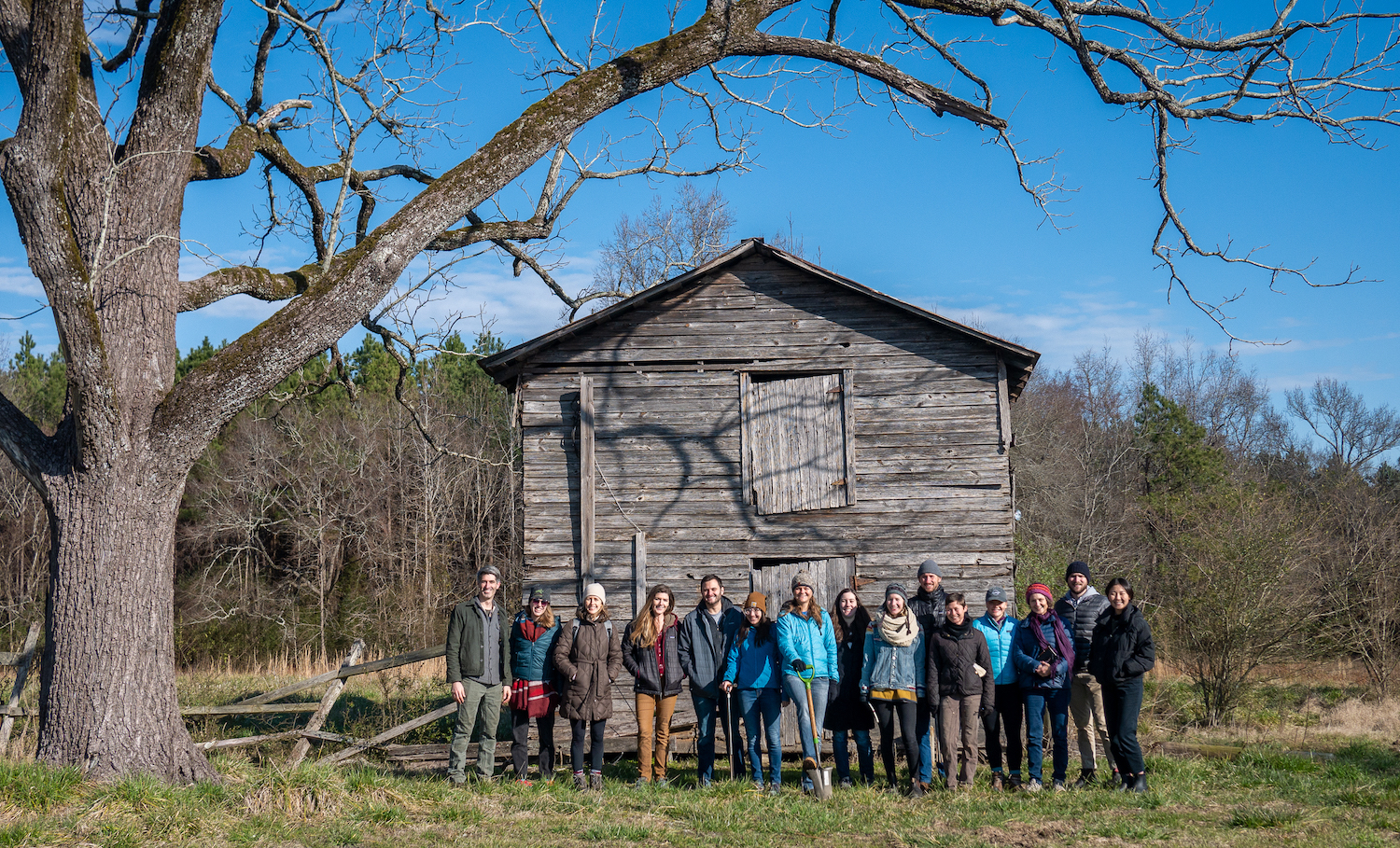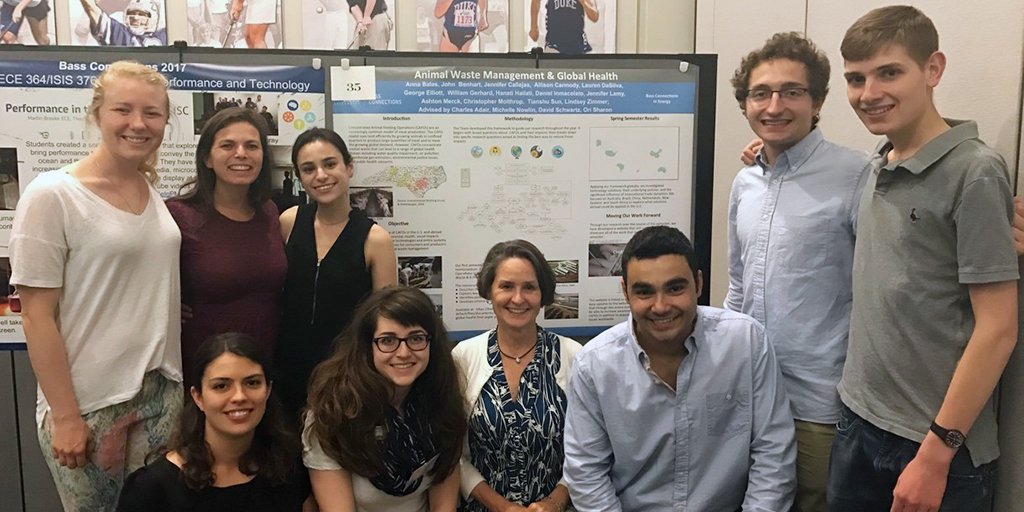Faculty Perspectives: Michelle Nowlin
Michelle Nowlin, Clinical Professor of Law and Co-Director of the Environmental Law and Policy Clinic
Bass Connections Project Team: Regenerative Grazing to Mitigate Climate Change
Michelle Nowlin is a member of the Bass Connections Faculty Advisory Council and has led Bass Connections teams since 2014. A Duke Law and NSOE alumna, her current project aims to facilitate a dramatic expansion in the adoption and success of regenerative grazing systems in North Carolina and the Southeast. She shared advice for other faculty at a Spring 2021 Bass Connections orientation for team leaders.
Structuring Your Team
For interdisciplinary teams, Nowlin noted the importance of establishing a baseline of knowledge and understanding before you start. This may resemble a traditional class setting. Multi-institutional teams in particular tend to be busy and chaotic. For her current team, they selected students with backgrounds in different areas: science (particularly soils and animal husbandry), policy and law, and business and marketing.

During the first semester, Nowlin and her team worked on establishing this baseline. The second semester shifted to a focus on project deliverables. She noted that she “really involved the students in what the goals and deliverables ought to be.” From her time with Bass Connections she has seen that students will be more committed to the project if they have a role in designing these outcomes. In the first year of the Regenerative Grazing project, students are committed early to attend and present at conferences, which helped them focus their goals and get organized.
In the past, Nowlin has not designated specific leadership roles among the students. “I have seen that the leaders announce themselves,” said Nowlin. So far, this has proved to be an effective method for her team.
Project managers can serve in leadership roles, but Nowlin has found it valuable to assign them to facilitation tasks as well. Her project managers have drafted newsletters, coordinated site visits and conferences and helped students solve problems. “This has been essential this semester for the asynchronous components of the class,” said Nowlin. “We also have more subteams this year. [Our Project Manager] helps to make sure that teams meet their deliverables.”

Setting Your Team Up for Success
Nowlin remarked on the importance of providing structure and being clear about what the goals of the project are, especially if the team has a large number of undergraduates. “Students can be uncomfortable with open-endedness,” Nowlin said. With enough organization, undergraduates will feel more confident and comfortable in articulating goals and contributing more effectively.

Setting a regular meeting time can also be helpful for a productive and successful team. Nowlin suggests setting a meeting time before registration begins. A mutually convenient time can be difficult to plan afterward and can lead to weekly meetings happening early in the morning or late at night, or to students dropping out of the project. Setting the meeting time before registration allows students to carve out time and prioritize the project.
Nowlin shared tips for making sure the project manager felt comfortable with the project. These included regular check-ins, setting performance goals and providing feedback and accountability. Nowlin has observed that this helps them to be more successful and facilitate overall teamwork.
Student Engagement and Networking
Faculty leaders should make efforts to introduce students to professional networks. One way to do this is to invite community team members and faculty resources — including research librarians — to speak as guest lecturers. This helps to engage both external partners and students. It also makes students more comfortable reaching out to them without the aid of faculty.
Nowlin also recommends getting students out of the classroom and into the field. This could include site visits, fieldwork and engagement with individuals outside of Duke. “A few COVID-safe meetings have helped us keep up momentum and build teamwork, so the students know they can rely on one another,” said Nowlin.

See other faculty perspectives and learn how you can get involved in Bass Connections.

